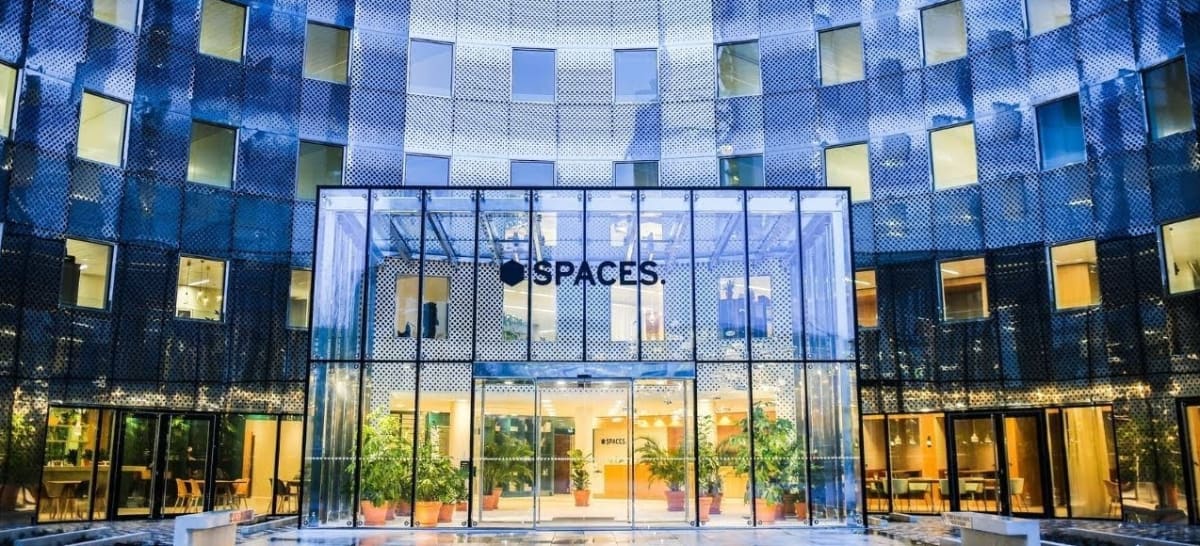Need for reduced commuting times and increased productivity prompt surge in flexspace use in France
As someone who’s been working for IWG for two decades, you’d think there’d be very little that could surprise Laurent Sainctavit when it comes to the flexible working market. But IWG’s Development Director for France and Monaco says even he has been astonished by the speed with which flexible workspace has taken hold, with a 400% increase in the last two years.
“Am I surprised by the rise of flexspace? No,” says Sainctavit. “But I am surprised by how fast it has happened, and that serviced offices and coworking locations are appearing in places that would have been inconceivable a few years ago, such as shopping malls and train stations.”
It’s easy to see why the country has embraced it. According to IWG's Global Workspace Survey 2019, 68% of workers in France now consider flexible working to be the “new normal”. Companies are responding positively too, with 77% of firms in France saying they now use flexible working to attract top talent.
According to the report, 79% of French businesses say they have seen an increase in productivity of 20% or more thanks to a flexible workspace policy. “France is a concentrated market,” Sainctavit observes. “Paris and the first 12 regional cities are like most large cities. They’re facing huge congestion issues.”
In fact, IWG’s study found that 84% of companies utilising flexible working did so to reduce commuting times; France’s are higher than all the other countries contained in the study and higher than the 75% global average.
Transport strikes have also acted as a catalyst for the need for flexible workspace, according to Sainctavit. With offices often located away from the big major cities and closer to where staff live, flexible workspace such as coworking locations, meeting rooms and serviced day offices can take away a lot of the potential headaches relating to commuting and transport links.
All in all, France is now a pre-mature market, the development director says, with large flexible workspaces up and running and with IWG very much still leading the way. “IWG is the only player operating a national network with 76 cities covered through five brands,” he states.
But this contrasts with Monaco, the traditional playground of the rich and famous. “Monaco by definition is a super concentrated market on which flexspace is regulated by local authorities and all competitors are local,” Sainctavit explains.
Despite rapid growth in all markets, he sees no signs of things slowing down, with companies now willing to add flexspace to their real estate strategy for short-, mid- and long-term planning. What’s more, it is also an ideal way of helping to insulate a company against potential economic headwinds thanks to the fact they don’t need to engage in long-term leases and can scale up or scale down their operations as needed.
“We already went through two major (financial) crises in France, it means more demand for flex working space due to uncertainty and opportunities for external development,” he says.
Sainctavit will shortly be bring his expertise to MIPIM 2020 in Cannes. Considered one of the highlights of the global real estate calendar, this highly prestigious event will feature speakers such as former French president Nicolas Sarkozy and co-founder of Apple, Steve Wozniak.
It’s something Sainctavit is really looking forward to. “Everybody is here, so it’s an easy way to make great contacts and develop new potential opportunities, and a fantastic showcase to present and explain our brands, services and development strategies,” he believes. One thing’s for certain: flexible workspace in France has become a firm fixture on the real estate landscape.
Interested in incorporating flexible workspace into your real-estate portfolio? Set up a meeting with Laurent at MIPIM by getting in touch here






